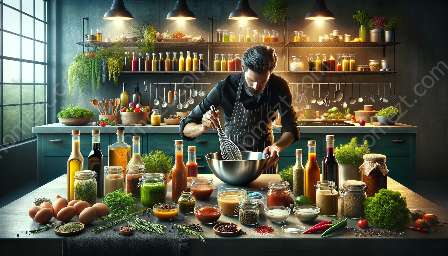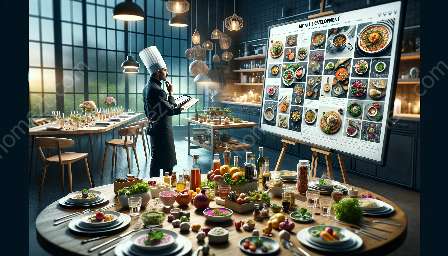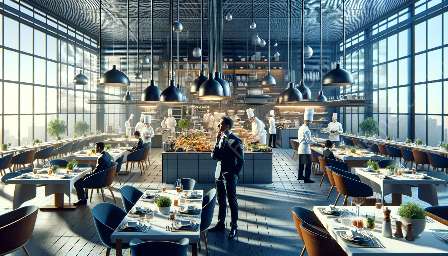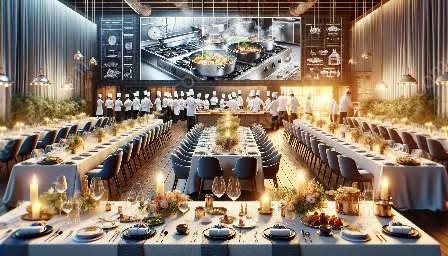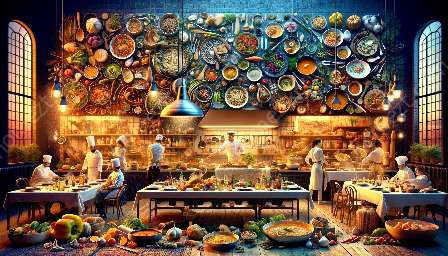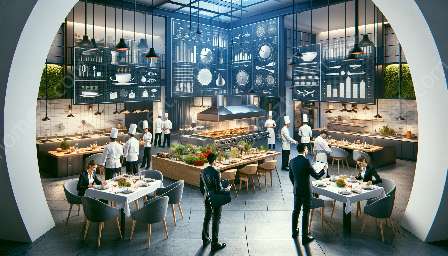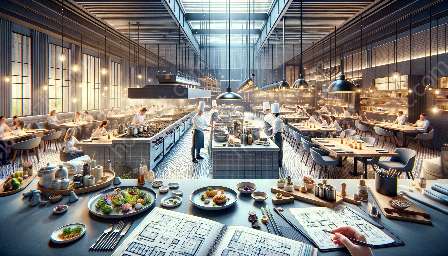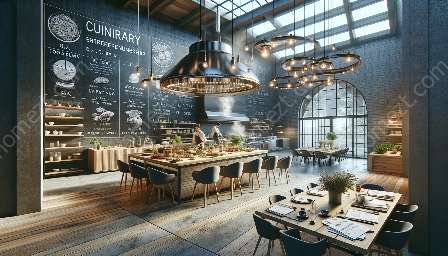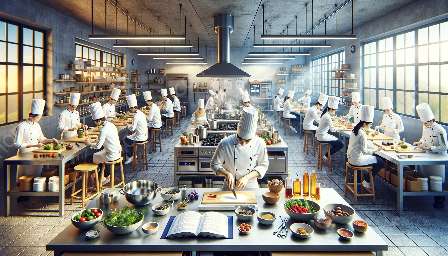Running a successful restaurant requires a deep understanding of restaurant operations, culinary arts, and kitchen & dining. In this comprehensive topic cluster, we'll explore the ins and outs of restaurant management, menu planning, kitchen operations, dining experiences, and much more.
Culinary Arts in Restaurant Operations
Culinary arts play a crucial role in restaurant operations. From menu creation to food preparation, chefs and culinary professionals are at the heart of a restaurant's success. Culinary arts encompass a wide range of skills, including cooking techniques, flavor profiling, and food presentation. In a restaurant setting, culinary professionals must not only showcase their culinary expertise but also ensure that kitchen operations run smoothly and efficiently.
Menu Planning and Development
One of the key aspects of culinary arts in restaurant operations is menu planning and development. A well-crafted menu that reflects the restaurant's concept and appeals to its target audience is essential for success. Chefs and culinary teams work closely with restaurant managers and owners to create and update menus that showcase creativity, quality ingredients, and culinary expertise.
Food Preparation and Presentation
Food preparation and presentation are integral parts of culinary arts in restaurant operations. Chefs and kitchen staff meticulously prepare dishes, ensuring that they not only taste exceptional but also look visually appealing. Presentation techniques, such as plating and garnishing, are crucial for creating memorable dining experiences and leaving a lasting impression on guests.
Restaurant Management and Operations
Effective restaurant management and operations are essential for ensuring a seamless and enjoyable dining experience. Restaurant managers oversee various aspects of operations, including staffing, inventory management, customer service, and overall restaurant performance. A well-managed restaurant is crucial for maintaining high standards and meeting customer expectations.
Staffing and Training
Recruiting, training, and retaining skilled staff members are vital components of restaurant operations. From chefs and kitchen staff to waitstaff and managerial roles, each team member plays a pivotal role in delivering exceptional service and upholding the restaurant's reputation. Training programs and ongoing professional development ensure that the staff is equipped with the necessary skills and knowledge to excel in their roles.
Inventory Management and Procurement
Managing inventory and procuring high-quality ingredients and supplies are crucial for maintaining consistent food quality and controlling costs. Restaurant operators must effectively manage inventory levels, monitor ingredient freshness, and establish relationships with reliable suppliers. Strategic procurement practices contribute to the overall success and sustainability of a restaurant.
Customer Service and Experience
Delivering outstanding customer service and creating memorable dining experiences are at the core of restaurant operations. From greeting guests to handling feedback, exceptional customer service is essential for building a loyal customer base and attracting new patrons. Restaurant managers and staff strive to ensure that every guest enjoys a pleasant and satisfying dining experience.
Enhancing the Dining Experience
Creating an exceptional dining experience goes beyond culinary arts and restaurant management. Factors such as ambiance, menu innovation, and sustainability contribute to elevating the overall dining experience for guests.
Ambiance and Atmosphere
The ambiance and atmosphere of a restaurant greatly influence the overall dining experience. Interior design, lighting, music, and overall ambiance set the tone for guests' dining experiences. Creating a welcoming and comfortable environment enhances guests' enjoyment of their meals and encourages them to return for future visits.
Menu Innovation and Trends
Staying current with culinary trends and innovations is essential for restaurants seeking to captivate their guests. Whether it's incorporating seasonal ingredients, embracing global flavors, or presenting unique dining concepts, menu innovation adds excitement and intrigue to the dining experience. Chefs and culinary teams continuously explore new culinary trends to offer guests an ever-evolving and exciting menu.
Sustainability and Ethical Practices
More than ever, diners seek restaurants that embrace sustainability and ethical practices. From mindful ingredient sourcing to eco-friendly initiatives, restaurants committed to sustainability resonate with conscientious diners. Implementing sustainable and ethical practices not only enhances the restaurant's image but also contributes to a more socially responsible dining experience.
Conclusion
Restaurant operations, culinary arts, and kitchen & dining are intricately connected, shaping the entire dining experience from start to finish. Whether it's the creativity and skill of culinary professionals, the seamless management of restaurant operations, or the elements that enhance the dining experience, each aspect plays a vital role in the success of a restaurant. By understanding and integrating these elements, restaurant owners, operators, chefs, and staff can create memorable dining experiences that keep guests coming back for more.







